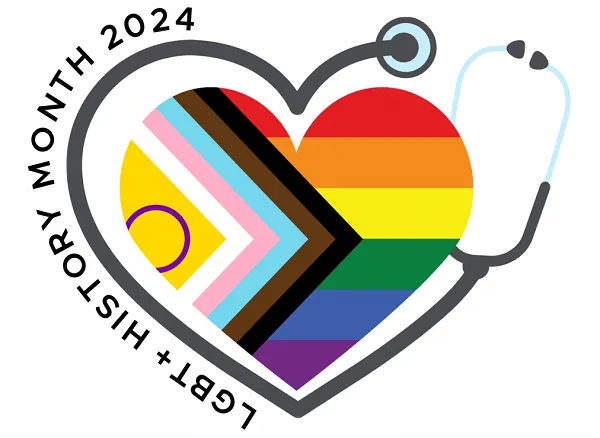
LGBT+ History Month, which takes place during the month of February, is an annual celebration of the LGBT+ community’s history and achievements. It was created by Schools OUT, a UK charity that promotes LGBT equality in education, to “claim our past, celebrate our present and create our future”. It’s also a time to raise awareness, combat prejudice and celebrate diversity.
This year’s theme is ‘Medicine – #UnderTheScope’, which aims to “showcase the amazing work of LGBT+ staff across the NHS and in other healthcare settings, in providing healthcare, especially during the pandemic”. It will also shine a light on the complex nature of the LGBT+ community’s experience of receiving healthcare throughout history up to present day.
At a time when the LGBT+ community is experiencing a rise in hate crime and hate instances, the charity is encouraging businesses to look “under the scope” and to listen to LGBT+ peoples’ lived experiences.
As LGBT+ History Month draws to a close, we spoke to Stephen Hare, managing director of our fiduciary business in Guernsey, to find out his experience of healthcare growing up as a gay man in the UK in the 1990s.
“One of my lasting memories of that time is of the need to remain hidden,” said Stephen. “I’d grown up with TV ads telling me I was going to die of AIDS just for being who I was, and I couldn’t discuss my health with my GP for fear that details would be placed on my medical records, which would then have prevented me from obtaining life assurance.
“The insurance companies had inserted mandatory questions in proposal forms asking if the applicant had ever taken an AIDS test. This seemed non-sensical to me. Why would you penalise people who were trying to protect themselves and others by denying them access to insurance cover for merely being tested?
“Thankfully, in my early 20s a close friend introduced me to an amazing doctor working out of the Chelsea & Westminster Hospital in London. David became a dear friend, providing guidance to (dare I say it) a particularly wet-behind-the-ears lad from Kent!
“David and his team were always there to answer questions, explain (usually repeatedly) how I should be protecting myself and others, and highlighting how it was entirely possible to be a happy gay man, despite the lies being peddled by the government at the time (don’t get me started). They also ensured complete anonymity. I didn’t ask if that was strictly allowed, but it certainly provided the security I needed.
“The 1980s and 90s were a scary time for gay people,” said Stephen. “I was lucky to have found David and an NHS team who were determined to protect people (irrespective of sexuality) by providing what I can only describe as a level of kindness that maybe NHS staff today find it difficult to emulate due to immense pressures.
“In Guernsey we have the Orchard Centre, which does an amazing job as an ‘open access’ clinic, ensuring that all Islanders can enjoy good sexual health. The service maintains anonymity but not because of fear or persecution – it is simply to ensure privacy and confidentiality.
“David was a hero of mine; we unfortunately lost him during Covid, but his love and kindness will forever be remembered. And not just by me but by the countless people whose lives he touched. That’s why I feel it’s so important to celebrate the LGBT+ community’s past and look to its future. We’ve come a long way after all, and I can now be fully open with the healthcare professionals I interact with,” he added.
In addition to his role as managing director of Sovereign Trust (Channel Islands) Ltd., Stephen serves as the Vice-Chair of the Sovereign Group’s Diversity, Equity & Inclusion Committee.
